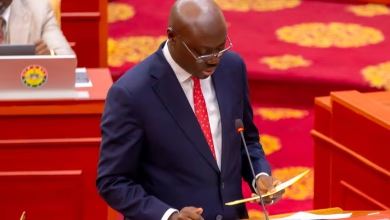The Monetary Policy Committee (MPC) of the Bank of Ghana (BoG) has made a significant move to boost the economy by reducing the policy rate from 29% to 27%. This decision was announced at the 120th MPC press conference held on Friday, September 27, 2024. According to Dr. Ernest Addison, the chair of the committee, the domestic economy is showing signs of recovery, with improved macroeconomic conditions, increased growth, and dropping headline inflation.
The reduction in policy rate is a welcome development, especially considering Ghana’s efforts to overcome its worst economic crisis in a generation. The country has been restructuring its debts and working to stabilize its economy after inflation soared beyond 50% in late 2022. However, with inflation easing to 23.2% year-on-year in December 2023, the MPC saw fit to lower the policy rate.
Dr. Addison expressed optimism about the country’s economic prospects, citing the disinflation process being on course. He forecasted that inflation would drop to 13-17% by the end of 2024 and further to 6-10% by 2025. The central bank’s inflation target is 8% with a margin of error of 2 percentage points either side.
The policy rate reduction is expected to have a positive impact on businesses and individuals, making borrowing cheaper and increasing economic activity. This move demonstrates the MPC’s commitment to supporting economic growth while maintaining price stability.
Ghana’s economic recovery is crucial for the country’s development, and the MPC’s decision is a step in the right direction. With the policy rate now at 27%, the country can look forward to increased investment, job creation, and economic expansion.
The Bank of Ghana has been working tirelessly to stabilize the economy, and this decision reflects their efforts. The central bank’s governor, Dr. Addison, emphasized the importance of maintaining tight monetary conditions to support the disinflation process.
The MPC’s decision was based on careful consideration of the country’s economic indicators. With growth picking up and inflation dropping, the committee saw an opportunity to lower the policy rate and stimulate economic activity.
This reduction in policy rate is the first since 2021, marking a significant shift in monetary policy. The MPC’s move is expected to have a ripple effect on the economy, leading to increased economic activity and job creation.
As Ghana continues on its path to economic recovery, the MPC’s decision will play a crucial role in shaping the country’s economic future. With the policy rate now at 27%, the country is poised for growth and development.
The Monetary Policy Committee’s decision to reduce the policy rate from 29% to 27% is a positive development for Ghana’s economy. This move is expected to boost economic activity, support businesses, and increase investment, ultimately contributing to the country’s economic recovery and growth.


